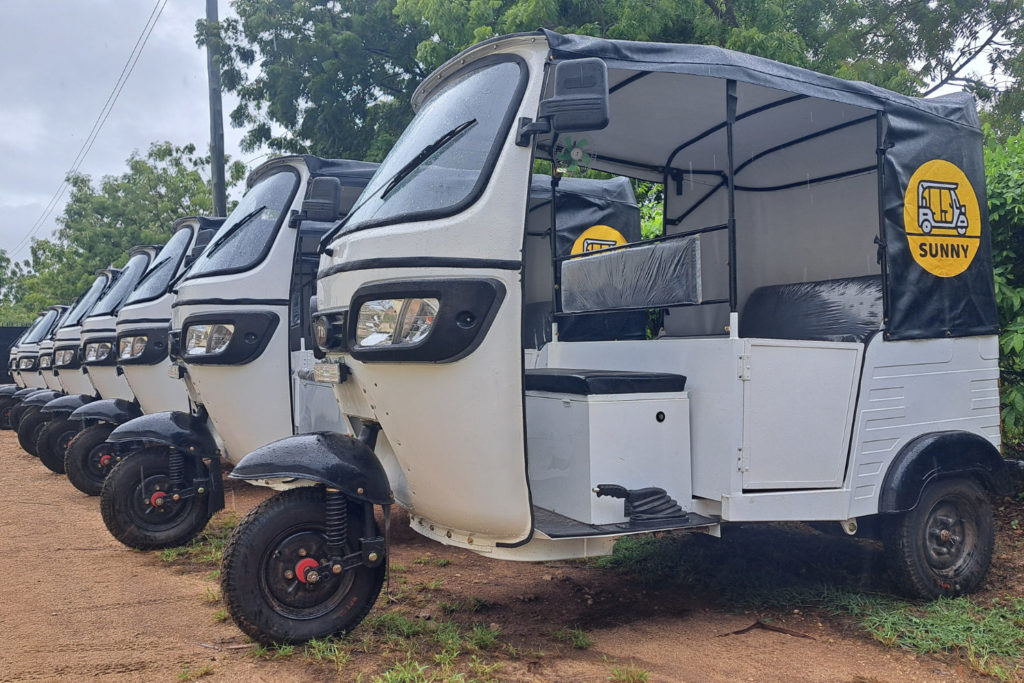Kenya’s electric-vehicle (EV) industry is moving from pilots to production, charging rollouts and fleet procurement, a transition that could generate ~100,000 jobs across manufacturing, charging, servicing and the wider supply chain by 2030 if policy, financing and training scale up. That matters because it links climate goals to youth employment, local industrialisation and cheaper urban transport.
Kenya can convert rising market demand and regional manufacturing interest into real jobs: assembly lines for buses and light vehicles, charging-station construction and operation, technician training and new service businesses. The job number is an optimistic but plausible scenario under accelerated investment and supportive procurement policies.
Where the jobs will come from
-
Vehicle assembly and light manufacturing
Local assembly of buses, mini-buses and motorcycles produces direct factory jobs for assemblers, welders, battery pack assemblers, test engineers and production supervisors. Firms operating in Kenya and East Africa (notably bus-maker BasiGo, conversion and EV startups like Opibus/Roam) are already scaling assembly and fleet deployments, creating manufacturing and logistics roles.
-
Charging infrastructure, construction and operations
Rolling out a reliable public and depot charging network is labour-intensive: site development crews, electricians, civil works, equipment installers, network operations staff and station attendants. Charging rollouts also generate construction and security jobs in the near term.
-
After-sales, servicing and technical training
EVs require new maintenance skills, battery management, power electronics and software diagnostics creating demand for trained technicians, trainers and vocational centres. Retraining existing mechanics and introducing EV modules in technical colleges are essential to convert available labour into sector-ready workers.
-
Indirect and induced employment
Beyond direct hires, suppliers (cables, structural parts, logistics), retail and food services around new industrial sites, and financial services supporting fleet financing generate indirect and induced jobs. Analysts estimate a large share of the 100K figure may come from these ripple effects as incomes and business activity rise.
Evidence the sector is scaling
Local manufacturers and fleet rollouts
Kenyan and regional firms are shifting from pilots to commercial operations. BasiGo’s production and deliveries of electric midi-buses and the expansion of e-motorbike fleets by firms converting two- and three-wheelers show demand and local assembly activity. These projects require factory staff, drivers, operations teams and charging support.
Start-ups hiring and training programmes
Start-ups focussed on conversions, fleet operations and charging services have been actively recruiting technicians, operations managers and customer service staff in 2024–2025, signalling rapid headcount growth as deployments scale.
Policy signals and procurement
Government and municipal interest in electrifying public transport, alongside donor and private capital for green transport, provide demand certainty when paired with public procurement programmes, a critical enabler for manufacturers and service providers to expand hiring.
Obstacles that must be overcome to reach 100K
-
Battery supply and high-value manufacturing
Battery cell manufacturing remains capital-intensive and dominated by global suppliers; Kenya is likely to capture jobs more readily in battery pack assembly and module integration than in cell production without major new investment or regional partnerships.
-
Access to financing
Large-scale fleet electrification needs affordable finance for vehicle purchases and charger installation. Without accessible financing and long-term contracts, manufacturers risk underused capacity and stalled job growth.
-
ySkills and standards
Rapid upskilling is required. Technical colleges, apprenticeship schemes and industry-led training must expand to produce battery technicians, power-electronics specialists and certified charger installers.
Policy levers and investment priorities
- Public fleet procurement (city and intercity buses) to create guaranteed demand and manufacturing scale.
- Incentives for local assembly and charger installation to attract investors and reduce capital costs.
- Training subsidies, accredited vocational courses and industry apprenticeships to build a skilled workforce.
- Standards and quality control that encourage tech transfer and protect consumers while enabling safe local maintenance.
Also read: Kenya’s Shift to Affordable, Cleaner Transport with China’s EV Tech
FAQs
Q: How to get into the electric vehicle industry?
A: Start with technical upskilling courses in electrical engineering, power electronics, battery systems or automotive diagnostics. Vocational training providers, employer apprenticeship programmes and short courses in EV maintenance and charger installation are practical entry points. Roles exist beyond technicians: supply-chain, sales, fleet operations, and charging network management provide non-technical pathways.
Q: How many electric vehicles are there in Kenya?
A: Exact totals shift rapidly; the Kenyan market grew from pilot fleets in the early 2020s to several thousand registered e-mobility units by 2024–2025 when counting buses, e-motorbikes and passenger EVs in urban fleets. Fleet deployments by bus-makers and e-motorbike firms are the fastest-growing segments.
Q: What is the electric vehicle industry growth?
A: Globally and regionally the EV sector has shown double-digit annual growth in sales and deployments. In East Africa, growth is concentrated in commercial fleets, last-mile delivery and public transport conversions. Growth drivers include falling battery prices, targeted finance and public procurement.
Q: How many jobs will EVs create in Kenya?
A: Estimates vary by scenario. Under an accelerated scale-up scenario with strong policy support, the sector could create up to ~100,000 direct, indirect and induced jobs by 2030 across manufacturing, charging and services. In conservative scenarios, job creation is smaller but still significant in maintenance and charging.
Q: What skills are needed for EV jobs?
A: Essential skills include battery management systems, power electronics, electrical safety, charger installation, telematics and software diagnostics. Soft skills in logistics, operations and customer service are also valuable as the sector expands.















